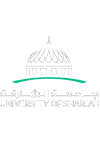knowledge to help determine the start of the Islamic months. At a time when technology is used everywhere, the Muslims must apply the latest technological astronomical tools to help set the Islamic calendar. The workshop was attended by several guests from the Islamic Affairs in Dubai and the Zayed Mosque in Abu-Dhabi. Prof. Omar Ibrahim from the Qasimia University emphasized that the religious observances of fasting are closely connected to sciences. Therefore, the use of astronomical knowledge is a must to facilitate for Muslims their religious duties. Prof. Ilias Fernini and Mr. Mohamed Talafha gave different presentations that emphasized the various astronomical criteria used to set the conditions for the crescent visibility. The astronomers stressed the weather effects that can render the observation of the crescent extremely challenging.
The overall consensus of the workshop is that the religious and astronomical conditions go together. Calculations are a necessity to help set a global and unified Islamic calendar. All of the previous meetings, being national or international, stressed the point that Islam does not refute calculations. Instead, they must be a must-use in our everyday life. As we use them to set the Islamic prayer times, we must use them to help us determine the beginning of the Islamic months.
The whole workshop can be found on YouTube: https://www.youtube.com/watch?v=iJdru3kDj1I



